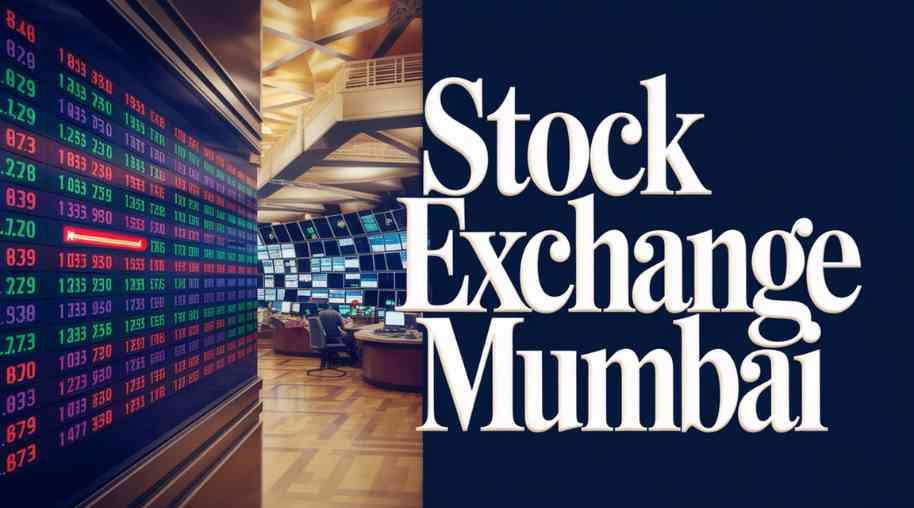BSE Full Form - The Stock Exchange, Mumbai
by Shashi Gaherwar
0 2365
Bombay Stock Exchange (BSE): A Pillar of India’s Financial Market
Introduction
The Bombay Stock Exchange (BSE) is India’s premier stock exchange and one of the oldest in Asia. Established in 1875, it has played a crucial role in shaping India’s financial landscape. BSE provides a robust trading platform for equities, derivatives, mutual funds, and debt instruments, making it an integral part of India's economy.

History and Evolution of BSE
The Bombay Stock Exchange was founded by Premchand Roychand, a prominent businessman, as The Native Share and Stock Brokers Association in 1875. It started as an informal gathering of brokers under a banyan tree in Mumbai and has now evolved into one of the world's fastest stock exchanges.
Some key milestones in BSE’s history include:
- 1957 – Recognized by the Government of India as the first stock exchange under the Securities Contracts (Regulation) Act, 1956.
- 1986 – Launched the BSE SENSEX, India’s benchmark stock index, comprising 30 of the largest and most actively traded stocks.
- 1995 – Shifted to electronic trading, replacing the open outcry system.
- 2017 – Became the first Indian stock exchange to go public.
Structure and Operations of BSE
- Trading Mechanism – BSE operates on a fully automated BOLT (BSE Online Trading) System, ensuring transparency, efficiency, and speed in trading.
- Key Indices –
- SENSEX – The benchmark index representing the top 30 stocks across various sectors.
- BSE 500 – Tracks the performance of 500 companies listed on BSE.
- BSE Midcap and BSE Smallcap – Measure mid and small-cap company performance.
- Types of Securities Traded –
- Equities – Shares of publicly traded companies.
- Derivatives – Futures and options contracts.
- Mutual Funds – Investment funds traded on the exchange.
- Bonds & Debt Instruments – Fixed-income securities issued by companies and the government.
Role of BSE in India's Financial Market
- Capital Formation – BSE provides companies with a platform to raise capital through Initial Public Offerings (IPOs) and further listings, enabling business expansion and economic growth.
- Market Liquidity – By allowing easy buying and selling of securities, BSE ensures liquidity, providing investors with opportunities for wealth creation.
- Investor Protection and Regulation – BSE is regulated by the Securities and Exchange Board of India (SEBI), ensuring transparency, fair trade practices, and investor protection.
- Technological Advancements – With the introduction of BSE StAR MF, India's largest online mutual fund distribution platform, and BSE SME Exchange, a platform for small and medium enterprises, BSE has embraced digital transformation to cater to evolving financial needs.
BSE vs. National Stock Exchange (NSE)
While BSE is India's oldest stock exchange, the National Stock Exchange (NSE) was established in 1992 and introduced electronic trading first. NSE has higher trading volumes due to its advanced technology, but BSE remains a strong competitor with a broader stock listing base and faster transaction settlement cycles.
The Bombay Stock Exchange (BSE) continues to be a cornerstone of India’s financial system, providing a transparent and efficient platform for investors and businesses alike. Its history, technological advancements, and role in capital formation have cemented its position as one of the most influential stock exchanges in the world.
With India’s growing economy and increasing global integration, BSE is expected to play an even more vital role in shaping the financial future of the nation.
Further Learning Resources
If you’re passionate about building a successful blogging website, check out this helpful guide at Coding Tag – How to Start a Successful Blog. It offers practical steps and expert tips to kickstart your blogging journey!
For dedicated UPSC exam preparation, we highly recommend visiting www.iasmania.com. It offers well-structured resources, current affairs, and subject-wise notes tailored specifically for aspirants. Start your journey today!

Share:









Comments
Waiting for your comments